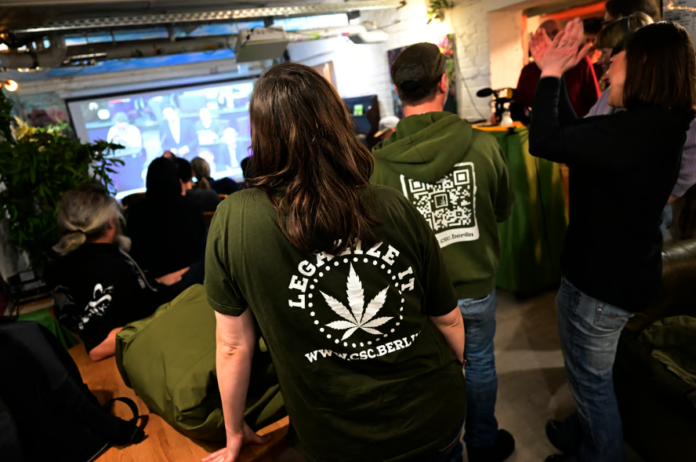Cannabis possession and home cultivation will be decriminalized in Germany from April 1 after the law passed the final hurdle in the Bundesrat, the chamber of the federal states, said on Friday, according to Politico.
Adults over the age of 18 will be allowed to possess 25 grams of cannabis and grow up to three plants at home. From July 1, non-commercial “cannabis clubs” can supply up to 500 members with a maximum monthly quantity of 50 grams per member.
“The fight was worth it,” wrote Health Minister Karl Lauterbach on X, formerly Twitter, after the decision. “Please use the new option responsibly.”
“Hopefully this is the beginning of the end for the black market today,” he added.
Until the very end, government representatives from the federal states had discussed whether they should use their right in the Bundesrat to convene a “mediation committee” to resolve disagreements about the law with the Bundestag, the chamber of federal representatives. That would have delayed the law by half a year. But at midday, they decided against it in a vote.
The states fear that their courts will be overloaded. Due to an amnesty provision in the law, tens of thousands of old cases related to cannabis have to be reviewed in a short period of time.
In addition, many criticized the amount of cannabis permitted for possession as too high and insufficient prohibition zones around schools and kindergartens.
The legislation, a prominent reform project of Chancellor Olaf Scholz’s government, was approved by parliament’s lower house last month. But its fate in the upper house, which represents Germany’s 16 state governments and where Scholz’s socially liberal coalition lacks a majority, was unclear, AP News reoprts.
The upper house could have delayed it by sending it to a committee that mediates disputes between the two houses, a move that backers feared would give the center-right opposition an opportunity to stop the project altogether. But opponents of the plan failed to muster a majority to call on the committee.
Lauterbach announced several changes to the law before July 1 in a statement. Cannabis clubs will now only have to be inspected “regularly” instead of “annually” — a less strenuous burden — in order to relieve pressure on state authorities. Addiction prevention will be strengthened.
Although this was not enough to fully satisfy many states, it did not stop Bundesrat members from passing the legislation on Friday. In every state, with the exception of Bavaria, parties from the federal government are in power.
The decriminalization legislation is what is known as the “first pillar” in a two-step plan to legalize cannabis in the country. The “second pillar” is expected after the decriminalization bill, and would set up municipal five-year pilot programs for state-controlled cannabis to be sold in licensed shops.
According to AP News, opposition leader Friedrich Merz vowed in an interview with the Funke newspaper group ahead of Friday’s vote that his party would reverse the legislation if it wins national elections expected in the fall of 2025


